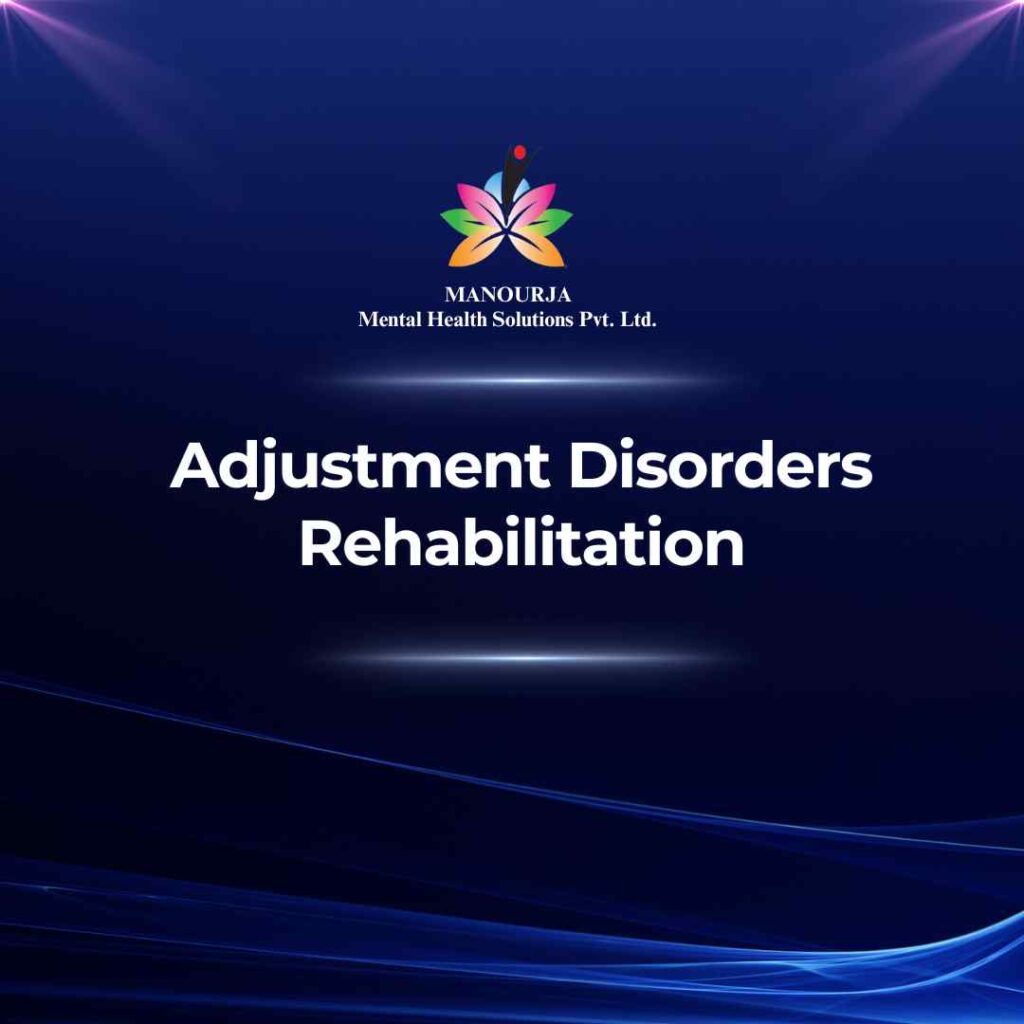Adjustment Disorders Rehabilitation

Adjustment Disorders are psychological responses to identifiable stressors, occurring when an individual is unable to adapt to or cope with significant changes in their life. The symptoms can vary widely but typically include emotional and behavioral signs that are disproportionate to the stressor and result in significant impairment in social, occupational, or other important areas of functioning.
Signs and Symptoms of Adjustment Disorders
- Emotional Symptoms: Anxiety, depression, sadness, or feelings of hopelessness.
- Behavioral Changes: Social withdrawal, avoidance of work or school, changes in daily behavior.
- Physical Symptoms: Fatigue, headaches, muscle pain, or stomach problems.
- Impaired Functioning: Difficulty performing tasks at work or school, maintaining social relationships, or managing daily routines.
Indicators for Outpatient Psychosocial Rehabilitation (OPD)
- Mild to moderate symptoms that do not significantly impair the person’s ability to function but still require professional intervention.
- Stable support system at home that can provide emotional support and encourage adherence to treatment plans.
- Ability to maintain some level of regular daily activities.
Indicators for Inpatient Psychosocial Rehabilitation (IPD)
- Severe symptoms that result in considerable impairment in functioning or significant risk of harm to self or others.
- Lack of support at home or significant environmental stressors that exacerbate the disorder.
- Ineffectiveness of outpatient treatment or need for more intensive therapeutic intervention.
Factors Influencing the Decision
- Severity and impact of symptoms on the individual’s life.
- Presence or absence of a supportive home environment.
- Individual’s history with other mental health treatments and their outcomes.
- Safety concerns, including risk of harm to oneself or others.
How Psychosocial Rehabilitation Aids in Treating Adjustment Disorders
Psychosocial rehabilitation helps individuals develop the skills needed to cope with stressors effectively, improve emotional regulation, and restore normal functioning through structured support and therapy.
Specific Techniques and Approaches at MANOURJA
- Cognitive Behavioral Therapy (CBT): Helps individuals identify and challenge negative thought patterns and behaviors, replacing them with healthier ones.
- Interpersonal Therapy (IPT): Focuses on improving interpersonal relationships and social functioning to provide better support networks.
- Problem-Solving Therapy: Enhances coping strategies to effectively manage stressors.
- Psychoeducation: Teaches individuals about the nature of adjustment disorders and stress management techniques.
- Group Therapy: Provides a platform to share experiences, receive support, and learn from others facing similar challenges.
Steps in Psychosocial Rehabilitation at MANOURJA
- Initial Assessment: Comprehensive evaluation of the individual’s mental health, the severity of symptoms, and the nature of stressors.
- Development of a Personalized Treatment Plan: Based on the assessment findings, tailored to the individual’s specific needs.
- Implementation of Therapy: Engagement in various therapeutic modalities, including individual and group therapy sessions.
- Monitoring and Adjustment: Continuous assessment of the individual’s progress with regular adjustments to the treatment plan as needed.
- Community Integration: Support in reintegrating into community activities, restoring relationships, and improving social networks.
“Every challenge is an opportunity for growth”
